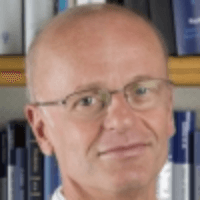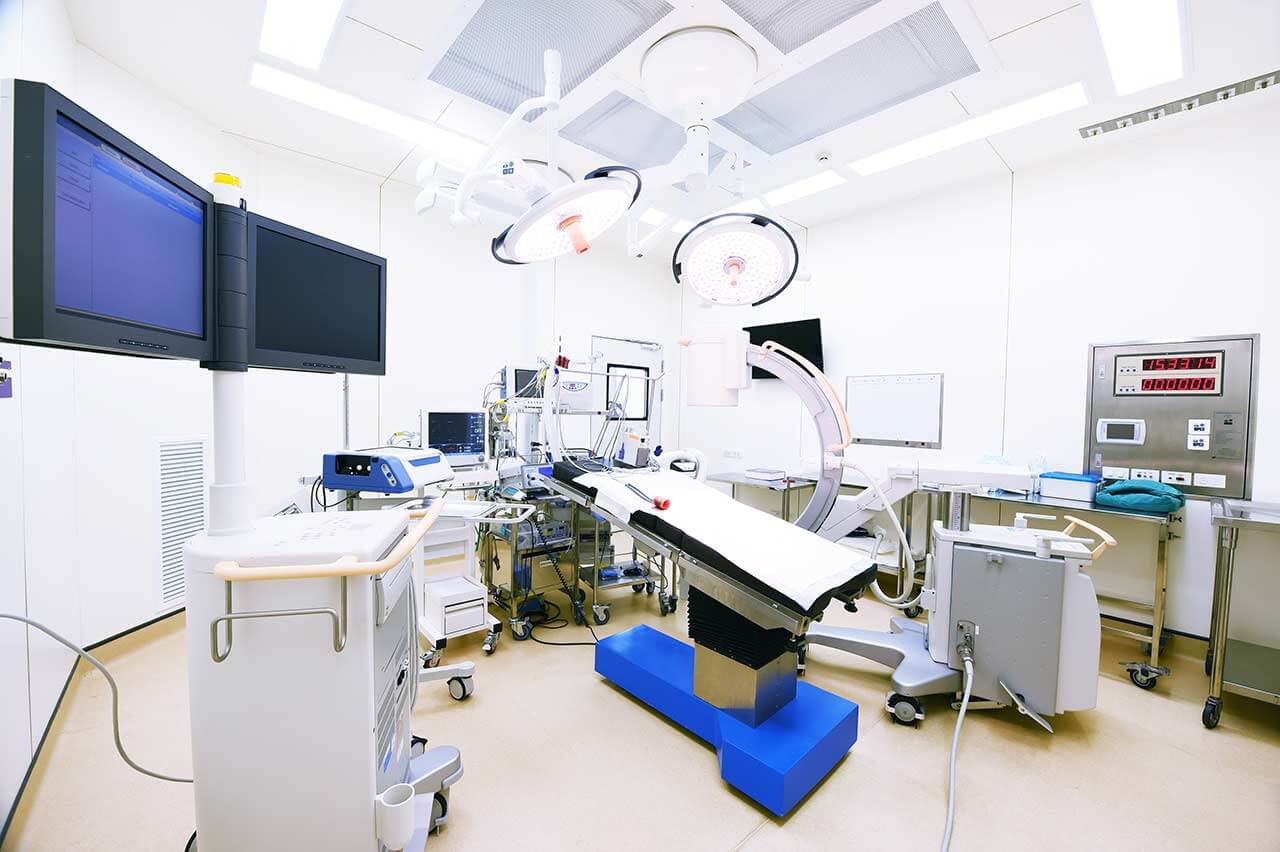
The program includes:
- Initial presentation in the clinic
- clinical history taking
- physical examination
- review of medical records
- laboratory tests:
- complete blood count
- biochemical analysis of blood
- TSH-basal, fT3, fT4
- indicators of inflammation (CRP, ESR)
- indicators blood coagulation
- otorhinolaryngological examination:
- Dix-Hallpike testing
- nystagmus testing:
- spontaneous nystagmus
- positional nystagmus
- artificial nystagmus testing
- speech audiometry
- tympanometry
- eustachian tube testing
- testing of blood pressure and buzzing
for tinnitus examination - otoacoustic emission test
- brainstem audiometry
- VEMP testing
(Vestibular evoked Myogenic Potential) - video head impulse testing
- eye movement testing
- CT of petrous pyramid
- preparation according to preoperative standard
- myringoplasty
- symptomatic treatment
- control examinations
- the cost of essential medicines and materials
- nursing services
- full hospital accommodation
- explanation of future recommendations
- written statement
Required documents
- Medical records
- Audiometry (if available)
- Temporal bone CT scan (if available)
Service
You may also book:
 BookingHealth Price from:
BookingHealth Price from:
About the department
The Department of Adult and Pediatric Otolaryngology at the University Hospital Bonn provides the diagnostics and treatment of all head and neck diseases. It offers the whole range of surgical treatment of otolaryngological disorders, ranging from the removal of tonsils to complex skull base surgery and cochlear implantation. Special attention is paid to cancer and reconstructive surgery. There is maintained close interdisciplinary cooperation, namely the department is part of the Center for Integrated Oncology (CIO) Cologne/Bonn. The Chief Physician of the department is Prof. Dr. med. Friedrich Bootz.
The department has a modern Diagnostic Center that offers patients all the capabilities of diagnosing the sensory organs. In addition to the standard methods of hearing check-up, the department routinely applies such techniques as differentiated testing of touch and taste, functional testing of the facial nerve, brainstem audiometry (ABR, auditory brainstem response audiometry), otoacoustic emission testing (OAE). Of particular importance is pediatric audiometry for the diagnostics of hearing impairment in infancy, including appropriate hearing rehabilitation with the help of hearing aids. For vestibular assessment, the department uses modern methods of videonystagmography and electronystagmography, as well as caloric testing of the vestibular system. A modern ultrasound machine provides the accurate diagnostics of neck and salivary gland diseases.
The department ranks among the leaders of ENT surgery in Germany. The surgeons have a broad arsenal of the very latest medical technologies. These include, for example, modern surgical microscopes, endoscopes with cameras and high-resolution screens, intraoperative neuromonitoring devices, etc. The surgical procedures on the middle ear, including cochlear implantation, are performed using modern operating microscopes. A large number of laryngeal interventions are performed using a laser. The highest accuracy in the paranasal sinus and skull base surgery is achieved through the use of intraoperative navigation, etc.
Priority is given to surgical oncology and reconstructive surgery. The most common cancers faced by the surgeons of the department include malignant neoplasms of the larynx, as well as ear tumors and other head and neck tumors. Thanks to close cooperation with other Cancer Centers, the doctors are able to develop optimal integrated treatment programs. The decision on the use of primary and adjuvant therapy are made with the participation of radiation therapists, oncologists, and therapists.
The service range is complemented by outpatient care in such fields as allergology, follow-up care after cancer treatment, plastic surgery, cochlear implantation, somnology/ronchopathy, etc.
The diagnostic and therapeutic spectrum of the department includes the following options:
- Diagnostics of diseases of the ear, throat, nose
- Standard methods of hearing check-up
- Differentiated testing of touch and taste
- Functional testing of the facial nerve
- Brainstem audiometry (ABR, auditory brainstem response audiometry)
- Otoacoustic emission test (OAE)
- Pediatric audiology assessment
- Videonystagmography and electronystagmography for balance testing
- Other diagnostic methods
- Conventional otolaryngology
- Diagnostic and treatment of ear diseases (outer ear, middle ear and mastoid, inner ear)
- Diagnostics and treatment of diseases of the nose and paranasal sinuses
- Diagnostics and treatment of diseases of the larynx, trachea, upper respiratory tract, etc.
- Diagnostics and treatment of salivary glands
- Diagnostics and treatment of tear ducts
- Diagnostics and treatment of sleep disorders (somnology)
- Diagnostics and treatment of swallowing disorders
- Diagnostics and treatment of allergies
- Operative otolaryngology
- Installation of cochlear implants
- Ear surgery
- Nose and paranasal sinus surgery
- Orbital and tear duct surgery (in collaboration with the Department of Ophthalmology)
- Skull base surgery
- Oral and nasopharyngeal surgery
- Laryngeal and pharyngeal surgery
- Neck and thyroid surgery
- Tracheal surgery
- Esophageal surgery
- Major salivary gland surgery
- Facial nerve surgery, surgical treatment of facial nerve paralysis (facial paralysis)
- Reconstructive surgery using flap surgical methods
- Plastic aesthetic interventions ("cosmetic" surgery)
- Special otolaryngologic surgery in infancy and childhood
- Diagnostics and treatment of other otolaryngologic diseases and malformations of the ear, throat, nose
Curriculum vitae
- 1973 - 1976 Study of Medical Informatics in Heidelberg.
- 1976 - 1981 Study of Human Medicine at the University of Tuebingen followed by a practical year at the District Hospital in Friedrichshafen.
- 1982 Admission to medical practice and doctoral degree at the University of Tuebingen.
- 1982 Beginning of the postgraduate training in Otolaryngology at the Department of Otolaryngology in the University Hospital Tuebingen.
- 1986 - 1987 Senior Resident at the Department of Otolaryngology of the University of Liverpool.
- 1987 Board certification in Otolaryngology and appointment as Acting Senior Physician in the Department of Otolaryngology at the University Hospital Tuebingen.
- 1989 - 1995 Head of the Department of Otolaryngology at the University Hospital Tuebingen.
- 1990 Additional qualification in Plastic Surgery.
- 1991 Habilitation and Venia legendi in Otolaryngology.
- 1995 Facultative further education in Operative Otolaryngology.
- 1995 Invitation to the Department of Otolaryngology at the University of Leipzig, appointment as a University Professor.
- 1995 Authorization from the Saxon State Medical Chamber to conduct advanced trainings in Otolaryngology (Plastic Surgery) and advanced trainings in Special Otolaryngologic Surgery.
- 2002 Invitation to the Department of Otolaryngology of the University of Bonn.
- 2008 Appointment as a Visiting Professor of the Faculty of Medicine at the Victor Babeş University in Timişoara, Romania.
- 2010 Honorary doctorate awarded by Victor Babeş University in Timişoara, Romania.
- 2014 Advancement Award of the Prof. Dr. Ludwig Haymann Foundation of the German Society of Otolaryngology in the field of Head and Neck Surgery.
- 2016 Honorary Professor of Hebei Medical University, Shijiazhuang, China.
Membership in Professional Societies
- German Society of Otolaryngology, Head and Neck Surgery.
- German Academy of Otolaryngology, Head and Neck Surgery.
- German Society of Plastic and Reconstructive Surgery (DGPW).
- German Cancer Society.
- German Society for Skull Base Surgery (DGSB).
- Spanish-German Society of Otolaryngology, Face and Head Surgery.
- German Society for Computer- and Robot- Assisted Surgery (CURAC).
- Association of West German Otolaryngologists.
Photo of the doctor: (c) Universitätsklinikum Bonn
About hospital
According to the authoritative Focus magazine, the University Hospital Bonn ranks among the top ten medical facilities in Germany!
The hospital was opened on January 1, 2001, although in fact it inherits the medical facility, which operated at the Faculty of Medicine of the University of Bonn. The hospital in Germany combines all the highest standards of modern university medicine of the international level. A highly competent team of experienced physicians, which consists of more than 8,000 employees from various fields, takes care of the patients’ health.
The hospital has 32 specialized departments and 23 institutes, which implement the highest standards of treatment in Germany. On their basis, in addition to the successful clinical activities, the productive research and training of young specialists are carried out. Also, the hospital has 10 intensive care units and more than 30 cutting-edge operating rooms. They are equipped with the advanced surgical, navigation and monitoring systems, which provide sparing and the most effective surgical treatment. The total number of places for hospitalization is 1,250 beds.
The hospital presents all fields of medicine, while many of them are awarded by prestigious German and international certificates. For example, in 2007, the Comprehensive Cancer Center of the hospital became one of the four winners at the nationwide competition among Cancer Centers of Excellence. The research focuses primarily on the clinical genetics and genetic epidemiology, neurology, immunology and infectiology, hepatology and gastroenterology, and diseases of the cardiovascular system. The research findings contribute to the development of new therapeutic methods and overall improvement of treatment in Germany.
The main value for all employees of the hospital in Germany is human health, his individual needs and wishes, therefore, despite the high-tech infrastructure, the focus remains on the human attitude and respect for each patient.
Photo: (с) depositphotos
Accommodation in hospital
Patients rooms
The patients of the University Hospital Bonn live in cozy single, double and triple rooms, designed in bright colors. The standard room furnishing includes a comfortable bed with a remote control, a bedside table, a wardrobe, a table and chairs, as well as a TV and a telephone. Each patient room is equipped with an ensuite bathroom with toilet and shower. The hospital also provides enhanced-comfort rooms.
Meals and Menus
The patients of the hospital are offered tasty and balanced three meals a day: breakfast, lunch and dinner. Every day each meal features three different menus, including a vegetarian one. If you for some reason do not eat all the food, you will be offered an individual menu. Please inform the medical staff about your dietary preferences prior to the treatment.
Further details
Standard rooms include:
Religion
Christian priests are available for the patients at any time. Representatives of other religions may be requested at any time.
Accompanying person
Your companion may stay with you in your room or at a hotel of your choice during the fixed program.
Hotel
You may stay at the hotel during the outpatient program. Our employees will support you for selecting the best option.
The hospital offers a full range of laboratory tests (general, hormonal, tests for infections, antibodies, tumor markers, etc.), genetic tests, various modifications of ultrasound scans, CT scans, MRI and PET / CT, angiography, myelography, biopsy and other examinations. Treatment with medications, endoscopic and robotic operations, stereotaxic interventions is carried out here, modern types of radiation therapy are also used. The hospital offers patients all the necessary therapeutic techniques.
- Surgical treatment of the brain tumors, tumors of spinal cord and spine
- Replacement of all joints, resection arthroplasty
- Deep brain stimulation and vagus nerve stimulation in patients with epilepsy
- Multimodal complex treatment of Parkinson disease
- Thoracic endovascular aortic repair (TEVAR)
These are benign and malignant breast pathologies, malignant tumors of various localizations, neuromuscular diseases, stroke, retinal pathologies and various visual impairments, infertility, autoimmune diseases, epilepsy, coronary artery disease and myocardial infarction, leukemia and other pathologies.
- Ophthalmology
- Epileptology
- Reproductive medicine
- Hematology and oncology
- Neurosurgery
Over 8,000 highly qualified doctors and other employees work at the hospital.





